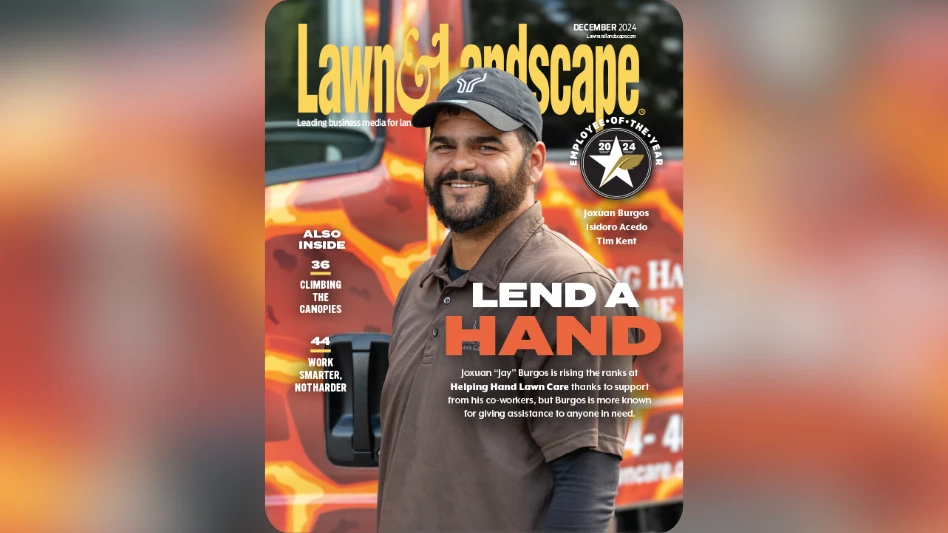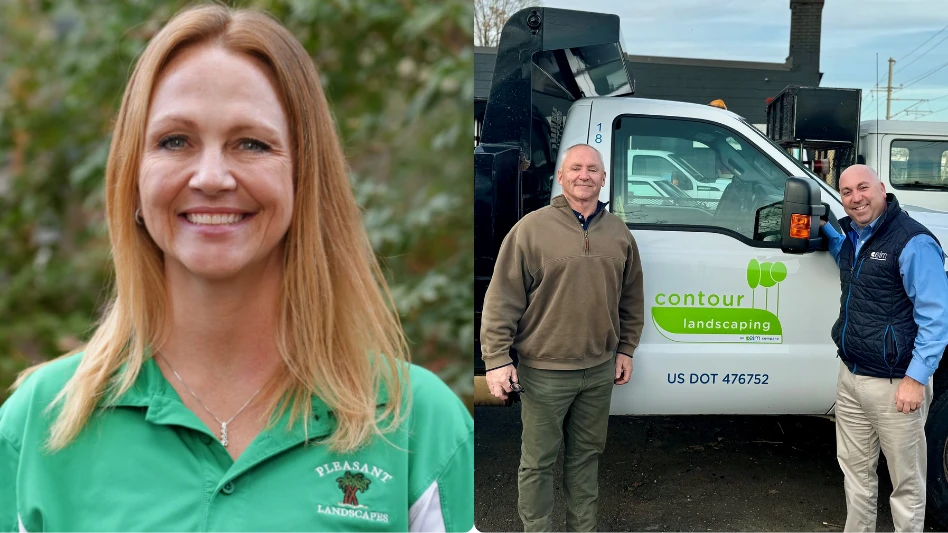

When a young Michael Mould wanted to buy a pair of cleats and shin guards, his dad wasn’t going to front him the money. Instead, he recommended Mould use the family lawn mower to cut the neighbor’s grass for some cash. But Mould’s dad would get a cut since he was using the family mower.
“It taught me that everything I get isn’t always mine,” says Mould, who is president of New Visions Lawn & Landscape in Panama City, Florida. “I was counting that money, but it really was owed to my dad.”
That was Mould’s first introduction to owing a landscaping company, and it wouldn’t be his last because in June of 2016, he became co-owner of New Visions.
And while Mould’s dad used his cut of the profits to buy Mould a basketball hoop, he knows as an adult business owner there will be no basketball hoops waiting for him at the end of the day.
But Mould isn’t going it alone. He’s taking the lead on the labor side, but his partner and vice president of the company, Tiffany Tucker, is in charge of all the back office operations.
Fast growth.
Tucker’s husband previously owned New Visions, but became too busy with his job in construction, so he passed it on to Tucker and Mould. When they assumed ownership, they inherited 50 customers and $35,000 in revenue.
After just two years, Mould and Tucker now have revenue of more than $400,000 and achieved that by “Working and working more, and after that we worked again,” Mould says.
Hard work definitely played a role, but so did the market, which Mould and Tucker say is doing well. Currently they are at capacity but will add another truck on the road this season. They have hired two experienced crew leaders with plans on hiring more crew members to run three trucks with two-man crews this season.

Mould especially wants to find someone who can handle installations since he’s been taking the lead on those jobs. He’s also enrolled in college part-time, taking business administration classes, so he has a full plate and would like to delegate some tasks.
“The day gets full pretty fast,” he says. “Every hour counts.”
Mould and Tucker also need to get a handle on their financials. For example, they don’t know if they are making more money off construction or maintenance jobs.
They were able to figure out their net profit margin, which shows they are doing well, but, as Michael wrote in his application essay: “We were doing something right, but we don’t know what that thing is. A quality service? Sure, we offer a quality service, we all work extremely hard and love what we do, but as far as really being able to narrow it down in a category, I am lost.”
Currently, the company is operating out of Tucker’s home, but they hope to have a new building in three to five years. But first, Mould and Tucker need to get their growth under control to achieve that goal and the goal that motivated them to be business owners – “To work on our dream instead of somebody else’s dream,” Mould says.
Harvester’s take:
First impression: Michael and Tiffany seem to have a good working relationship with each having clearly defined roles and strong trust in each other. Michael has a clear vision of the potential of the company but is wearing so many hats he will restrict growth unless he hires and delegates. The quality of their jobs needs help immediately, and their equipment is old and worn and needs an upgrade for work and marketing purposes.
What they are doing well: Along with the good partnership between Michael and Tiffany, they have a great culture and they have good relationships with their employees and as a result it looks like there will be little attrition. Michael and Tiffany are both ambitions and not afraid of growth, and have a good relationship with some of their major competitors.
Immediate areas for improvement: They need to begin a weekly safety program to maintain a good safety record. They need to clean trucks inside and out and add safety equipment to improve morale and make for a better brand identity. Beginning a sales campaign will help reach both short- and long-term financial goals. A written vision, mission and core values statements needs to be developed to give direction for both the owners and their employees. They need to move toward more commercial sales, and begin the Harvest Quality Counts Program to maintain consistent quality on all accounts.


Explore the February 2018 Issue
Check out more from this issue and find your next story to read.
Latest from Lawn & Landscape
- LawnPro Partners acquires Ohio's Meehan’s Lawn Service
- Landscape Workshop acquires 2 companies in Florida
- How to use ChatGPT to enhance daily operations
- NCNLA names Oskey as executive vice president
- Wise and willing
- Case provides Metallica's James Hetfield his specially designed CTL
- Lend a hand
- What you missed this week





